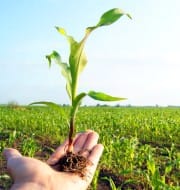Ministry of Agriculture and Ministry of Skill Development ink MoU on skill development at KVKs
The Ministry of Agriculture and Farmers’ Welfare and Ministry of Skill Development and Entrepreneurship have signed MoU to conduct skill development training programmes for agriculture and allied sector. These skill development training programmes will be conducted at Krishi Vigyan Kendra (KVKs).
Key Facts
The MoU will help to increase cooperation between both ministries and help in fulfilling Government’s dream of “Kaushal Bharat-Kushal Bharat”. It will help to increase agricultural productivity, post-harvest management and fair-prices to the farmers for their produce, lower risk in agriculture and strengthen and develop other aspects of farmers’ income such as horticulture, animal husbandry, beekeeping, dairying, fisheries etc.
Krishi Vigyan Kendra (KVK)
KVK is a project of ICAR (Indian Council of Agricultural Research) for testing and transfer of Agricultural technologies at grassroot level. These centres are located in every state. The first KVK, on a pilot basis was established in 1974 at Puducherry under the administrative control of Tamil Nadu Agricultural University, Coimbatore.
At present there are 668 KVKs, out of which 458 are under Central Agricultural University (CAU) and State Agricultural Universities (SAU), 55 under ICAR Institutes, 35 under State Governments, 100 under NGOs, and remaining 17 under other educational institutions.
Mandate of KVK
Its mandate is of technology assessment and demonstration for its application and capacity development. Each KVK is envisaged with following activities
- On-farm testing to assess location specificity of agricultural technologies under various farming systems.
- Capacity development of farmers and extension personnel to update their knowledge and skills on modern agricultural technologies
- Frontline demonstrations of technologies to establish production potential on fields.
- Work as knowledge and resource centre of agricultural technologies to support initiatives of public, private and voluntary sectors to improve agricultural economy of district.
- Provide farm advisories using ICT and other media means on varied subjects of interest to farmers.
- Increase self-employment opportunities among farming communities.
Month: Current Affairs - March, 2018


